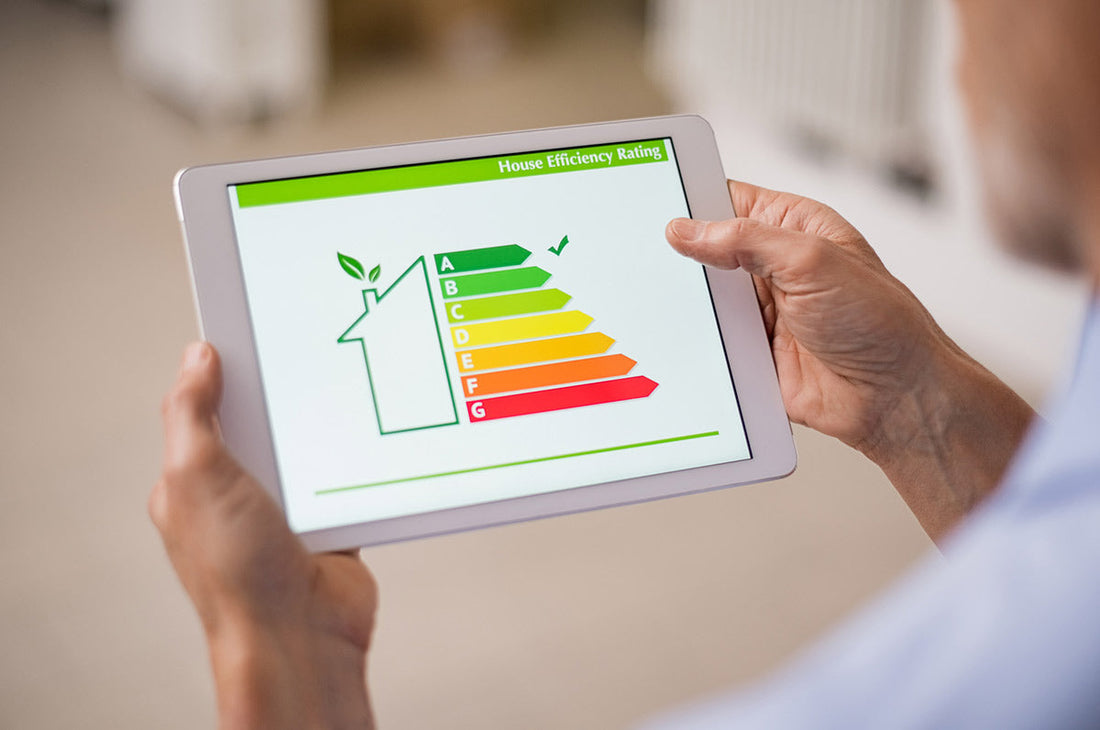
Understanding EPC Requirements for Landlords: A Comprehensive Guide
Share
As a landlord, ensuring your property meets legal standards is crucial. One of the key requirements you need to be aware of is the Energy Performance Certificate (EPC). Whether you're a seasoned property owner or new to the rental market, understanding EPC requirements is essential to avoid penalties and attract tenants. In this blog, we’ll break down everything you need to know about EPCs, including what they are, why they matter, and how to comply with the regulations.
What is an EPC?
An Energy Performance Certificate (EPC) is a document that rates the energy efficiency of a property on a scale from A (most efficient) to G (least efficient). It also provides recommendations on how to improve the property’s energy efficiency, such as installing insulation, upgrading heating systems, or using renewable energy sources.
EPCs are valid for 10 years and are required whenever a property is built, sold, or rented out. For landlords, this means you must provide a valid EPC to prospective tenants before they move in.
Why are EPCs Important for Landlords?
-
Legal Requirement: Since 2008, it has been a legal requirement in England, Wales, and Scotland for landlords to provide an EPC to tenants. Failure to do so can result in fines.
-
Tenant Appeal: Energy-efficient homes are increasingly attractive to tenants, as they can lead to lower utility bills and a smaller carbon footprint. A good EPC rating can make your property more marketable.
-
Environmental Responsibility: Improving your property’s energy efficiency contributes to reducing greenhouse gas emissions, aligning with global efforts to combat climate change.
-
Future-Proofing Your Investment: With stricter energy efficiency regulations on the horizon, improving your EPC rating now can save you from costly upgrades later.
What are the Current EPC Requirements for Landlords?
As of October 2023, the minimum EPC rating required for rental properties in England and Wales is E. This means your property must have an EPC rating of E or above to be legally rented out. However, there are plans to increase this minimum requirement to C by 2025 for new tenancies and by 2028 for all existing tenancies.
Here’s a quick breakdown of the key requirements:
-
Minimum Rating: E (currently), C (from 2025/2028).
-
Exemptions: Some properties may be exempt, such as listed buildings or those where improvements would negatively impact the property’s value. Landlords must register exemptions on the PRS Exemptions Register.
-
Penalties: Failing to provide an EPC or renting out a property below the minimum rating can result in fines of up to £5,000.
How to Obtain an EPC
Getting an EPC is a straightforward process:
-
Find an Accredited Assessor: Use the government’s official EPC register to find a qualified energy assessor in your area.
-
Arrange an Assessment: The assessor will visit your property to evaluate its energy efficiency. This typically takes 30 minutes to an hour.
-
Receive Your Certificate: Once the assessment is complete, you’ll receive your EPC with the property’s rating and improvement recommendations.
Tips for Improving Your EPC Rating
If your property’s EPC rating is below the required minimum, or if you simply want to improve it, here are some cost-effective measures you can take:
-
Insulation: Improve loft, wall, and floor insulation to reduce heat loss.
-
Heating Systems: Upgrade to a more efficient boiler or consider installing a heat pump.
-
Lighting: Replace traditional bulbs with energy-efficient LED lights.
-
Windows and Doors: Install double or triple glazing to improve thermal efficiency.
-
Renewable Energy: Consider adding solar panels or other renewable energy sources.
What Happens if You Don’t Comply?
Failing to meet EPC requirements can have serious consequences:
-
Fines: Landlords can be fined between £500 and £5,000, depending on the property’s value and the severity of the breach.
-
Inability to Rent: Properties with a rating below E cannot be legally rented out until improvements are made.
-
Reputational Damage: Non-compliance can harm your reputation as a landlord, making it harder to attract tenants in the future.
Looking Ahead: Future Changes to EPC Regulations
The UK government is committed to improving energy efficiency in the private rental sector. By 2025, all new tenancies will require a minimum EPC rating of C, and this will extend to all existing tenancies by 2028. Landlords should start planning now to ensure their properties meet these stricter standards.
Final Thoughts
EPC requirements are more than just a legal obligation—they’re an opportunity to enhance your property’s appeal, reduce energy costs, and contribute to a greener future. By staying informed and proactive, you can ensure your rental property remains compliant and attractive to tenants.
If you haven’t already, now is the time to check your property’s EPC rating and take steps to improve it if necessary. Not only will this help you avoid penalties, but it will also position you as a responsible and forward-thinking landlord.
Need Help?
If you’re unsure about your property’s EPC rating or how to improve it, consult an accredited energy assessor or a property management expert. They can guide you through the process and help you make the necessary upgrades to meet current and future requirements.
Stay compliant, stay efficient, and happy renting! Follow us on facebook https://www.facebook.com/EPCRATINGLTD
